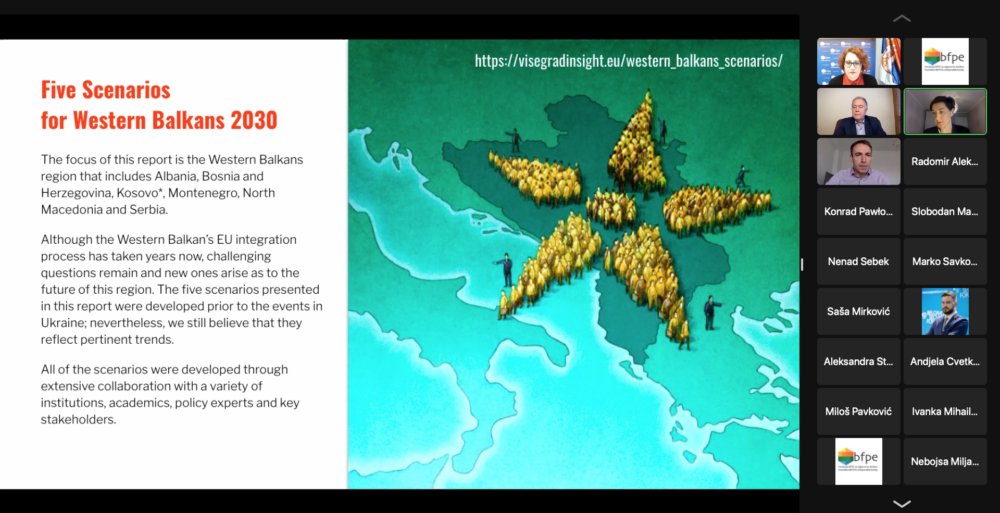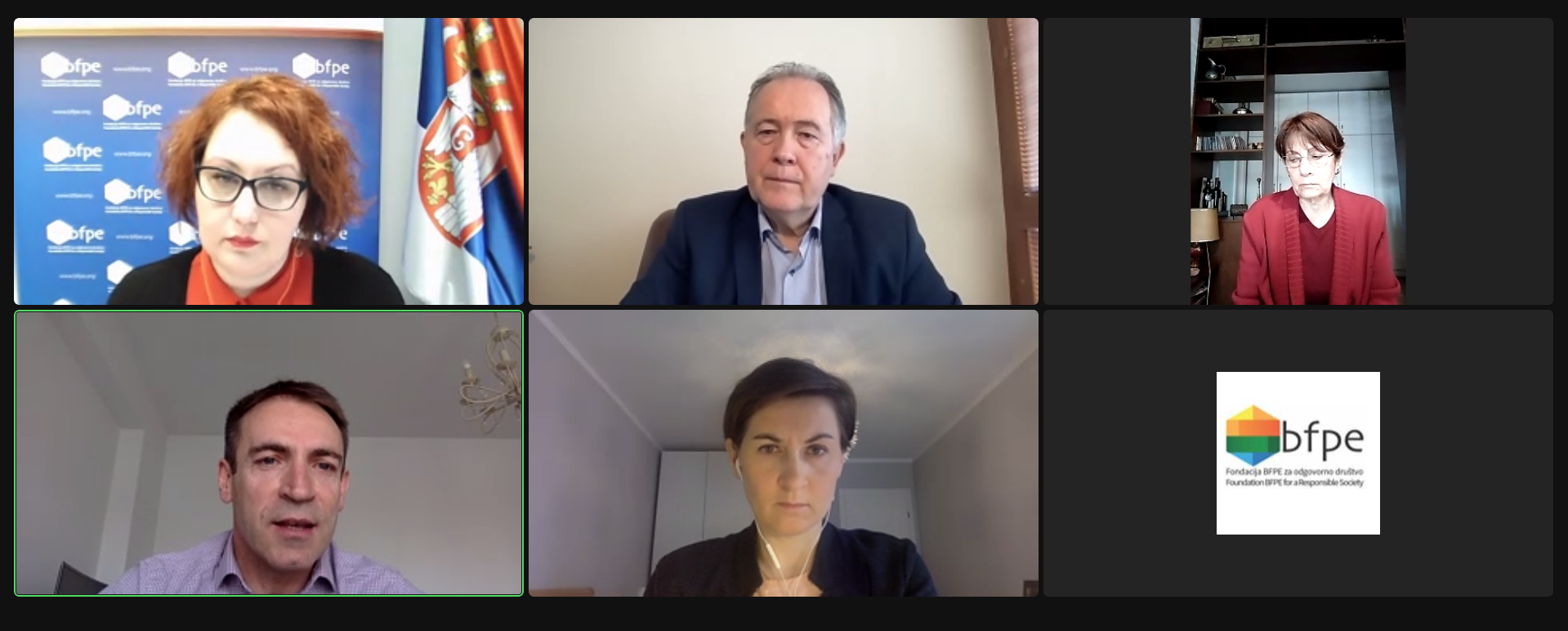The online discussion “European Perspectives of the Western Balkans in Time of Crisis” was held on March 16, 2022 and is one in a series of events organized or to be organized within the Western Balkans and Visegrad Group projects to advance and expand the debate on the future of the Western Balkans.
Teatiana Pollak-Grujić, Program Manager of the EU Neighborhood Program in the Visegrad Insight Group, opened the discussion by presenting a report entitled “The Future of the Western Balkans: Five Scenarios for 2030”. Based on research and discussions, the authors prepared five different scenarios for the future of the Western Balkans. The first scenario is the Forced Hand, a scenario related to the development of further integration of the Western Balkans and the EU. The second is the Dark Future, which speaks of the continuation of the unsatisfactory and potentially explosive status quo. Then, Banding Together, a scenario that indicates the unification of countries around global challenges. The fourth is Elusive Europeanization, which refers to the eternal process of negotiations on EU accession. And the last scenario presented is the Defragmentation of the Western Balkans, which represents strong economic cooperation between countries that erases complaints from the past.
Pavol Demes, Senior Fellow at the German Marshall Fund of the United States in Bratislava, pointed out the exceptional importance of the presented report and pointed out the fundamental thing we must start from when considering the scenario, which is war and tectonic changes in international relations. Challenges arise on several sides. The question is what will happen with the post-Soviet space and Russia itself, but also what will happen with the migrant crisis. The key challenge in positioning the Western Balkans will depend on how the countries of the Western Balkans will react to aggression, how they will adapt, but also how they will intensify regional cooperation. The countries of the Western Balkans need to be more creative, and present some ideas and bring new values.

Jelica Minić, President of the European Movement in Serbia, pointed out the dramatic situation in which we find ourselves, as well as the different contradictory information that comes to us from different sides. She pointed out that the region should not exert pressure and rely on the EU when it is preoccupied with current events. In her opinion, the scenario around the status quo is no longer possible. She added that there is no completely clear scenario for the Western Balkans until 2030, but that a combination of some of them may be a better option. What is important and good is that the countries in the region do not attack each other, which means that some kind of solidarity is present. Also, in none of the Western Balkan countries are there any significant moves in terms of solving problems such as rule of law, corruption, captive state, freedom of the media.
Shpetim Gashi, vice-president of the Council of Inclusive Governance, stressed the importance of security and the EU’s attempt to close all security gaps. One of the important things is what the new foreign, security, and energy EU and the US will look like and its impact on the Western Balkans region. The next important thing is the reforms that are being implemented in the region, which are mostly based on political leadership and are not fully democratic. What can be the solution and can lead to a more certain future of the Western Balkans by 2030 is economic growth and regional economic cooperation, but it is not entirely possible without structural changes.
Svetlana Stefanović, Executive Director of the BFPE Foundation for Responsible Society, concluded that the future has never been certain and certain and that there have always been different narratives. But that is exactly why we have to learn to keep up with the various complexities we encounter and to work on our societies and on ourselves. If we want to build a better future, it is necessary to work together, to cooperate at all levels and with different actors.
The online discussion was organized within the project “Western Balkans – Exploring the Path for the Region”, which is supported by the International Visegrad Fund and is part of a broader initiative called “Future of the Western Balkans” aimed at expanding and raising the debate on the future of the Western Balkans. The project is implemented in partnership in Albania, Serbia, Northern Macedonia, Hungary, Slovakia, the Czech Republic, and Poland, and in addition to the BFPE Foundation for Responsible Society, partner organizations are: Albanian Institute for International Studies, EUROTHINK – Center for European Strategies, Institute for Foreign Affairs and Trade, the Prague Institute for Security Studies and the Slovak Foreign Policy Association.
All five scenarios can be read here.













